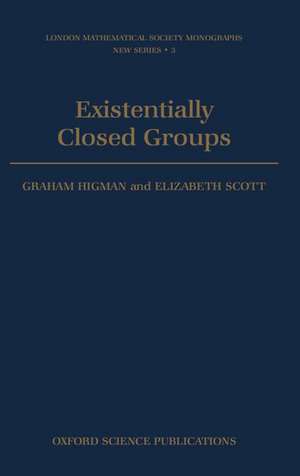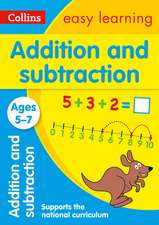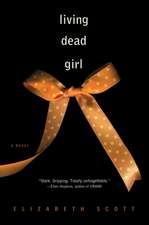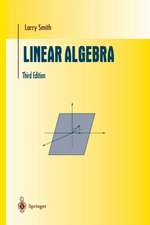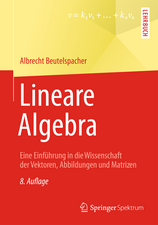Existentially Closed Groups: London Mathematical Society Monographs, cartea 3
Autor Graham Higman, Elizabeth Scotten Limba Engleză Hardback – 30 iun 1988
Din seria London Mathematical Society Monographs
- 23%
 Preț: 775.25 lei
Preț: 775.25 lei - 23%
 Preț: 789.54 lei
Preț: 789.54 lei - 23%
 Preț: 876.12 lei
Preț: 876.12 lei - 19%
 Preț: 514.04 lei
Preț: 514.04 lei - 23%
 Preț: 782.58 lei
Preț: 782.58 lei - 34%
 Preț: 1594.81 lei
Preț: 1594.81 lei - 39%
 Preț: 940.28 lei
Preț: 940.28 lei - 34%
 Preț: 1905.56 lei
Preț: 1905.56 lei - 31%
 Preț: 501.78 lei
Preț: 501.78 lei - 34%
 Preț: 1127.50 lei
Preț: 1127.50 lei - 34%
 Preț: 1479.96 lei
Preț: 1479.96 lei - 34%
 Preț: 832.87 lei
Preț: 832.87 lei - 34%
 Preț: 1593.86 lei
Preț: 1593.86 lei - 34%
 Preț: 1345.02 lei
Preț: 1345.02 lei - 34%
 Preț: 1658.69 lei
Preț: 1658.69 lei - 34%
 Preț: 1202.96 lei
Preț: 1202.96 lei - 34%
 Preț: 1491.55 lei
Preț: 1491.55 lei - 34%
 Preț: 1856.93 lei
Preț: 1856.93 lei - 34%
 Preț: 876.33 lei
Preț: 876.33 lei - 34%
 Preț: 1502.57 lei
Preț: 1502.57 lei - 34%
 Preț: 1111.19 lei
Preț: 1111.19 lei - 34%
 Preț: 1128.27 lei
Preț: 1128.27 lei - 34%
 Preț: 1319.81 lei
Preț: 1319.81 lei - 34%
 Preț: 863.38 lei
Preț: 863.38 lei - 34%
 Preț: 1359.56 lei
Preț: 1359.56 lei - 31%
 Preț: 366.40 lei
Preț: 366.40 lei - 34%
 Preț: 1249.87 lei
Preț: 1249.87 lei - 27%
 Preț: 802.60 lei
Preț: 802.60 lei - 27%
 Preț: 836.00 lei
Preț: 836.00 lei
Preț: 313.90 lei
Preț vechi: 403.82 lei
-22% Nou
Puncte Express: 471
Preț estimativ în valută:
60.07€ • 64.23$ • 50.08£
60.07€ • 64.23$ • 50.08£
Carte tipărită la comandă
Livrare economică 07-14 aprilie
Preluare comenzi: 021 569.72.76
Specificații
ISBN-13: 9780198535430
ISBN-10: 0198535430
Pagini: 170
Ilustrații: 5 figures
Dimensiuni: 159 x 241 x 16 mm
Greutate: 0.46 kg
Editura: Clarendon Press
Colecția Clarendon Press
Seria London Mathematical Society Monographs
Locul publicării:Oxford, United Kingdom
ISBN-10: 0198535430
Pagini: 170
Ilustrații: 5 figures
Dimensiuni: 159 x 241 x 16 mm
Greutate: 0.46 kg
Editura: Clarendon Press
Colecția Clarendon Press
Seria London Mathematical Society Monographs
Locul publicării:Oxford, United Kingdom
Cuprins
Notation and conventions; Introduction; Centralizers and normalizers of subgroups; -homogeneous groups; Recursion theory; Applications of the Subgroup theorem; The Relative-Subgroup theorem; Games; Free products; First-order of existentially closed groups; Bibliography; Index.
Recenzii
'Since the book was written, quite different developments have begun, concerning equations i groups... the Higman-Scott book should be a rich source of ideas for the new restricted theory.' London Mathematical Society
